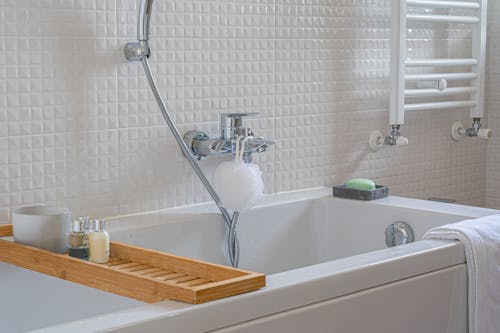
Igiena reprezinta modalitatea prin care reusesti sa-ti mentii zona intima curata si sanatoasa. Pentru a te asigura de acest aspect e nevoie sa urmezi anumiti pasi esentiali in rutina ta de ingrijire si sa respecti cu strictete cateva reguli de baza. Produsele cosmetice pe care le folosesti, frecventa spalarii si modalitatea pe care o aplici, toate acestea influenteaza in maneria pozitiva sau negativa starea zonei tale intime. In cazul in care nu asiguri o igiena corespunzatoare organismul tau va reactiona si e posibil sa te confrunti cu probleme nedorite cum ar fi infecțiile vaginale sau vaginoza bacteriană.
Iata mai jos care sunt pasii pe care ar trebui sa-i adopti astfel incat igiena ta intima sa fie realizata in mod corespunzator
Reguli de baza privind igiena intima
- Utilizeaza produse de calitate, special concepute pentru zona intima
Pielea din aceasta zona necesita o ingrijire speciala realizata cu produse pentru igiena intima care sa fie delicate cu aceasta. PH-ul vaginului este mai acid spre deosebire de restul organismului, iar acest lucru ajuta la mentinerea bacteriilor bune cum ar fi lactobacilii și la prevenirea aparitiei celor rele. Asa ca trebuie sa adopti modalitati de buna practica astfel incat sa nu afectezi echilibrul PH-ului.
Spalarea cu sapun/ geluri obisnuite poate fi o actiune destul de agresiva care va conduce catre dezechilibrarea PH-ului si implicit va provoca probleme precum mâncărime, miros și infecții. Daca deja suferi de o infectie, spalarea cu gelul de dus pe care-l folosesti pentru restul corpului poate contribui la agravarea problemei. Cel mai recomandat este sa utilizezi produse testate dermatologic si ginecologic care sunt hipoalergenice si de calitate superioara. Glicerina, de exemplu este un emolient care asigura o curatare delicata. Trebuie doar sa utilizezi cateva picaturi si sa te speli asa cum te-ai spala cu sapunul obisnuit.
Totodata in momentul in care mergi la toaleta e recomandat sa utilizezi hartie igienica fina si sa o eviti pe cea cu nivel ridicat de fibre din lemn și aditivi antibacterieni.
- Spala-te de cel putin o data pe zi
Ideal este sa te speli cel putin odata pe zi, cu apa calda pentru a evita transmiterea anumitor bacterii in momentul in care mergi la toaleta. In perioada mensturatiei este recomandat sa-ti igienizezi zona de doua ori pe zi. In acest scop poti folosi bideul sau instala unul in propria baie. Acesta desi e foarte popular in tarile din Asia a inceput sa fie din ce in ce mai apreciat si utilizat si in tarile Europene. Pe piata sunt disponibile o varietate de sisteme care iti pot oferi confortul dorit si sa asigure o igienizare eficienta si corespunzatoare a zonei intime. In functie de bideul ales, poti seta temperatura apei, ajusta intensitatea fluxului de apa si sa dispui de un sistem de inchidere soft-close.
- Nu utiliza jetul de apa direct catre vagin
In momentul in care pulverizezi apa direct in organul tau intim e posibil sa eficientizezi procesul de patrundere a bacteriilor in organism, fapt pe care nu ti-l doresti. Asa ca opteaza pentru o spalare usoara, delicata in care apa sa curga de sus in jos.
- Nu spala vaginul la interior
Vaginul are capacitatea de a se curata singur prin intermediul secretiilor pe care le produce. Daca vei spala vaginul in interior vei distruge echilibrul PH-ului si flora bacteriana care protejeaza impotriva infectiilor. Spalaturile vaginale sunt indicate numai in cazuri speciale si la recomandarea medicului specialist.
- Nu opta pentru spalarea cu buretele sau manusi
Pielea din zona intima este foarte delicata ceea ce face ca atentia si grija ta sa fie ridicate. Nu utiliza materiale abrazive care pot fi agresive cu pielea si pot avea efecte negative. Foloseste-te doar de maini pentru a te spala.
- Folosește un prosop moale
Foloseste un prosop moale, din bumbac si complet uscat pentru a absorbi apa si a impiedica dezoltarea bacteriilor. Totodata fii sigura ca nu folosesti in mod repetat acelasi prosop de baie, dimpotriva indicat este sa ai unul nou, curat la fiecare ingrijire a zonei intime. Nu folosi niciodata acelasi prosop pe care l-a folosit in prealabil partenerul tau sau alt membru al familiei. Prosoapele pe care le folosesti trebuie spalate la cel putin 60° pentru o dezinfectie totala si corecta;
- Sterge-te si spala-te in sens unic
Intodeauna, cand mergi la toaleta, e bine sa cureti zona intima din fata in spate mai ales cand utilizezi servetele vaginale. Vei evita astfel transmiterea anumitor bacterii odata cu eliminarea scaunului;
- Poarta lenjerie intima din bumbac
Bumbacul permite pielii sa respire spre deosebire de materialele sintetice care pot provoca cresterea nivelului de umiditate din zona intima creand astfel un mediu favorabil pentru dezvoltarea bacteriilor daunatoare. In acelasi timp evita sa porti pantaloni stramti, iar pe durata noptii poti renunta la lenjerie;
- Acorda atentie epilarii zonei intime
Dupa momentul epilarii zonei inghinale pielea devine mai vulnerabila si astfel creste riscul de infectii asa ca fii atenta tot timpul la lenjeria pe care o porti si la modul in care iti ingrijesti zona. Foloseste o lama noua, curata de fiecare data iar aparatul de epilat pastreaza-l intr-un loc ferit de umezeala. Totodata incearca sa nu utilizezi creme depilatoare care conțin ingrediente agresive.

Igiena intima specifica in diferite perioade ale vietii
In perioada menstruatiei trebuie sa te asiguri ca respecti intocmai pasii unei igiene corespunzatoare. In aceste momente e nevoie sa cresti numarul de spalari pe zi, ajungand pana la 3-4 spalari. Cantitatea de sange eliminata creste riscul de dezvoltare a bacteriilor, asa ca trebuie sa fii foarte stricta si riguroasa in aceasta perioada.
Totodata fii sigura ca schimbi absorbantele odata la 2-4 ore. Purtarea unuia mai mult de 4 ore poate determina multiplicarea bacteriilor daunatoare. Daca respecti acest interval de ore si vei schimba absorbantele in mod regulat, te vei simti curata si iti vei mentine organul genital intr-o stare normala, sanatoasa.
Evita sa intretii relatii sexuale in timpul menstruatiei deoarece acest lucru poate provoca infectii. Asteapta pana la incheierea perioadei, mai ales daca esti predispusa infectiilor, mancarimilor sau durerilor de piele din zona intima.
Cel mai bun sfat pentru a-ti curata zona intima dupa actul sexual este de a urina. Astfel vei curata orice bacterie ca ar fi putut sa migreze in uretra si sa provoace ulterior anumite infectii. Pe langa asta e nevoie de spalarea zonei, bineinteles cu produsele speciale. Daca observi anumite neregularitati precum iritatii, inflamatii sau secretii neobisnuite, consulta un medic in scop de preventie sau tratare a problemei.
După menopauză, pielea vulvei are nevoie de mai multa umiditate, deoarece aceasta zona va deveni mai sensibila si uscata. Exista produse special concepute pentru femeile aflate la menopauza pentru a menține nivelul PH ului și pentru a echilibra flora vaginala
Pentru a te asigura ca mentii o stare optima e bine sa integrezi in rutina ta alimente bogate in vitamina E, vitamina C, proteine si colagen.
Igiena intima - Cum iti dai seama daca vaginul tau este sanatos
Pentru a mentine sanatatea organului tau intim e nevoie sa observi semnele pe care corpul tau le transmite. Vezi la ce ar trebui sa acorzi atentie, cand poti fi sigur ca esti complet sanatoasa si cand e nevoie sa iei masuri.
Semne care iti arata ca vaginul tau este sanatos
Pentru a-ti da seama daca vaginul tau este sanatos si igiena ta intima corespunzatoare trebuie doar sa fii atenta la ceea ce iti transmite organismul tau. Vezi care sunt semnele care nu ar trebui sa-ti ofere motiv de ingrijorare:
- Prezenta unei secretii albicioase - exista anumite glande in colul uterin care produc un lubrifiant natural care se deplaseaza pana in partea de jos a vaginului, ajutandu-l sa ramana umed si sanatos. Acesta are un miros slab care nu este nici neplăcut, nici murdar, nu are o culoare neobișnuită și nu provoacă mâncărime;
- Un miros familiar - atunci cand nu observi o schimbare in ceea ce priveste mirosul iar acesta nu este deranjant sau neplacut atunci cel mai probabil vaginul tau este intr-o stare buna.
Chiar daca consideri ca te afli intr-o stare buna si perfect sanatoasa, nu inseamna ca consultatiile de rutina la medicul ginecolog nu mai sunt necesare.
Semne care iti arata ca vaginul tau este nesanatos
Incearca sa fii atenta la orice schimbare, simptom nou sau neobisnuit deoarece acestea ar putea reprezenta semnele unei probleme de sanatate care vor necesita o consultatie din partea unui medic ginecolog. Iata mai exact care sunt semnalele pe care le transmite organismul tau in aceste momente.
- Urinare frecventa si dureroasa;
- Durere in timpul actului sexual sau sangerari dupa acesta;
- Prezenta unei secretii inchise la culoare (verde, gri) sau cu sange (fara a avea vreo legatura cu menstruatia);
- Prezenta unui miros urat, neplacut, neobisnuit;
- Mancarime sau iritatii in zona intima;
- Umflaturi la nivelul vaginului.
Reguli de igiena intima - Alimente recomandate pentru a mentine zona intima sanatoasa
Alimentele pe care le consumi afecteaza organul intim la fel cum afecteaza si celelalte organe din corp. Asa ca pentru ca organismul tau sa functioneze optim trebuie sa consumi o gama larga de substante nutritive. Opteaza pentru o dieta bogata in antioxidanți, vitamina E, vitamina C, acizi grasi omega-3, acizi grași omega-6, proteine si probiotice. Iata 5 alimente care te vor asigura ca vaginul tau se mentine sanatos:
Iaurtul - Iaurtul transporta bacteriile bune, echilibreaza nivelul PH-ului, eliminand riscul de uscaciune, mancarime sau miros neplacut;
Ouale - Prin faptul ca oul contine vitamina D, vei fi mai putin predispusa la riscul de infectii bacteriene, care vor conduce la un vagin nesanatos;
Citricele - Lamaile sau portocalele contribuie cu succes la sanatatea vaginala si pot preveni scurgerile sau infectiile cu care te confrunti, datorita vitaminei C. Aceasta reduce riscul de infectii vaginale la jumatate datorita prezentei acidului ascorbic;
Pestele - Consumul de pește sau alimente bogate în omega-3 ajută la prevenirea endometriozei (o afectiune in care tesutul endometrial functional este in afara cavitatii uterine - fiind si principala cauza a infertilitatii);
Brocolli - Fie ca-ti place sau nu acesta indeplineste un rol cu adevarat important in mentierea sanatatii organului tau genital, prin faptul ca contine antioxidantii necesari organismului in cantitati mari.
Mituri despre igiena intima

Avand in vedere toate informatiile disponibile pe internet e posibil sa fii coplesita si sa nu mai reusesti sa faci diferenta intre ceea ce e indicat si nu sa faci. Iata care sunt miturile sau preconceptiile multor femei despre igiena intima si care sunt aspectele carora trebuie sa le acorzi importanta de fapt:
MIT -Secretiile vaginale indica o infectie
Secretiile vaginale sunt absolut normale. Acestea au mai multe scopuri importante, cum ar fi curățarea și umezirea vaginului împreună cu prevenirea și combaterea infecțiilor.
MIT - Mirosul vaginal este semn al unei infectii cu transmitere sexuala
Fiecare vagin are propriul miros specific, iar acesta variază si poate fi unul diferit in momentul ciclului menstrual, atunci când transpiri sau imediat după actul sexual. Asa ca daca simti un miros, dar nu unul neplacut nu e nevoie sa-ti faci griji.
MIT - Spălarea canalului vaginal cu un amestec de apa-sapun sau apa-otet mentine PH-ul echilibrat
Acest lucru poate modifica microbiomul natural al vaginului. Femeile care fac astfel de dușuri regulate prezintă un risc mai mare de a face cancer de col uterin și boli inflamatorii pelvine.
MIT - Alegerea unui anumit tip de lenjerie nu este necesara
Cand vine vorba de lenjeria intima este indicat sa le alegi pe cele din bumbac 100% deoarece aceasta tesatura naturala este cea mai blanda cu pielea. In plus, permite pielii sa respire si absoarbe cu usurinta umezeala, fapt de mare ajutor in momentul scurgerilor vaginale.. Purtarea de lenjerie de corp sintetică ( nailon sau poliester) în mod regulat poate provoca roșeață, iritatii ceea ce poate duce la diverse afectiuni.
In concluzie acorda o atentie deosebita ingrijirii zonei tale intime. Trebuie sa iei in considerare faptul ca aceasta este o zona sensibila care necesita produse special concepute, cu ingrediente care au o actiune blanda si nu provoaca iritatii sau dezechilibre. Respecta pasii esentiali de curatare cu strictete, in special in perioada mensturatiei sau dupa intretinerea relatiilor intime. Totodata invata sa-ti observi si sa-ti intelegi organismul. In momentul in care iti dai seama de anumite simptome neobisnuite consulta pentru siguranta ta un medic specialist, care iti poate da cele mai bune indicatii in acest sens.
Sursa: pexesl.com



👏 Igiena intima este foarte necesară și foarte benefică. Nici o femeie nu trebuie sa treacă cu vederea peste aceste detalii.